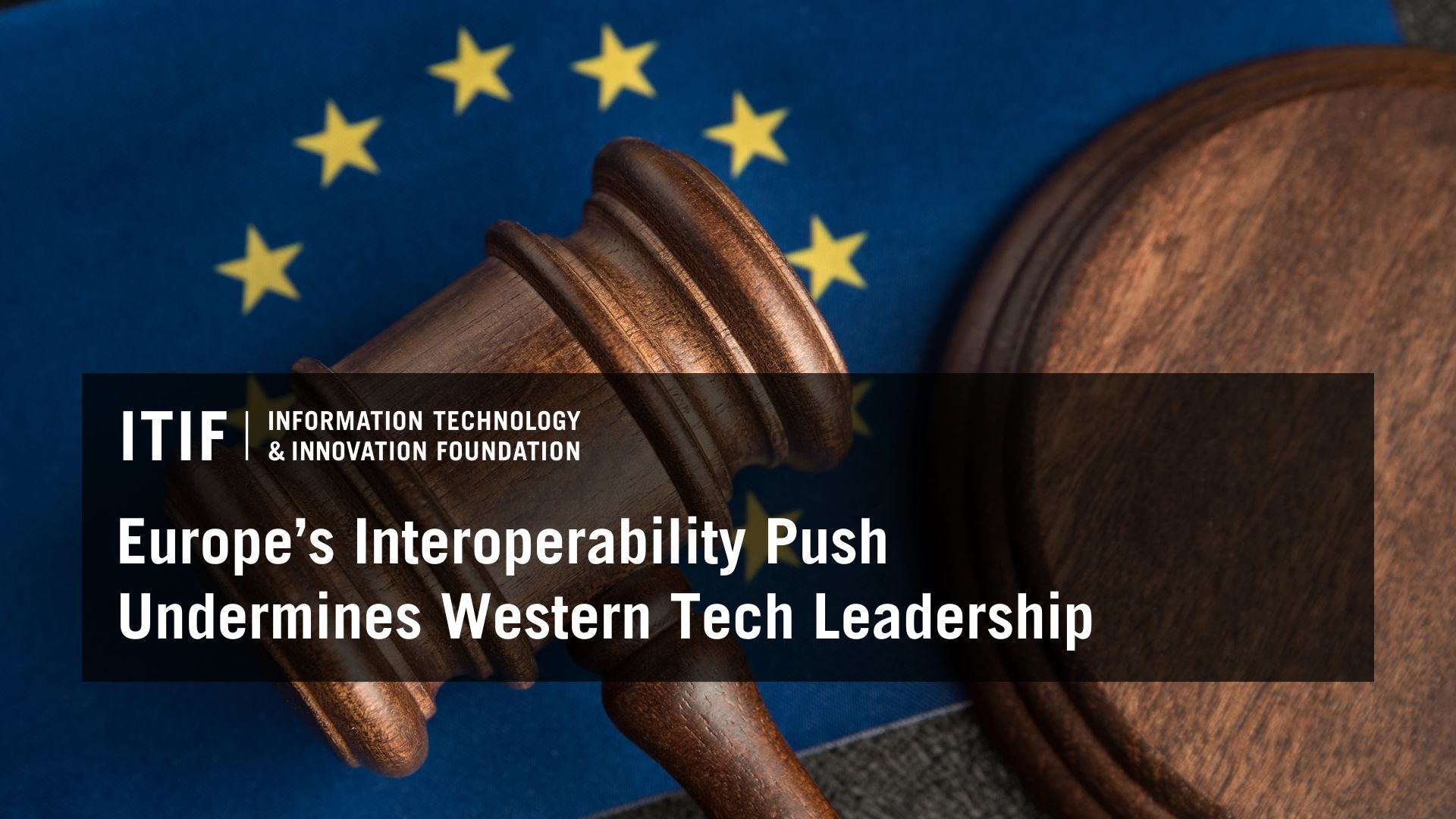Indonesia has denied visas to Israel athletes ahead of the upcoming world championships in the world’s most populous Muslim-majority nation.
Published On 10 Oct 2025
Gymnastics’ governing…

Indonesia has denied visas to Israel athletes ahead of the upcoming world championships in the world’s most populous Muslim-majority nation.
Published On 10 Oct 2025
Gymnastics’ governing…

Regularly eating meals away from home may carry more than just financial costs. A large cohort study of over 42,000 adults in China found that frequent dining out was significantly associated with an increased risk of


Many successful tech firms rely on closed, integrated ecosystems that limit third-party access to preserve consistent performance, user privacy, and device security. With its Digital Markets Act, the European Commission has mandated a different approach by requiring a small number of designated “gatekeepers,” the vast majority of which are American, to open up their platforms to third parties. But the EU’s interoperability requirements do not just create heavy engineering burdens on firms and distort investment into new features, they also directly harm European consumers by forcing companies like Apple to weaken its security and withhold innovative new features in the single market.
The DMA imposes numerous interoperability obligations on service providers, which the EU has framed as necessary to ensure “all developers have an effective and predictable path to interoperability and are enabled to innovate.” Notably, Article 6(7) sets out specific obligations for ensuring “effective interoperability”—a tenuous standard in practice which, as ITIF has argued, is not limited to protecting as-efficient competitors and the EU is enforcing in a way akin to public utility regulation rather than more “light touch” conduct-focused rules. In addition to interoperability, the DMA’s Article 6(4) also requires gatekeepers to allow sideloading applications and Article 5(4) bans gatekeepers from restricting business users from steering customers to other platforms or payment options.
The EU’s DMA interoperability regime is already imposing a heavy cost. Specifically, the DMA’s interoperability rules broadly require Apple to give third-party developers the same level of access to core iOS software features that Apple’s own apps and services enjoy. As such, Apple is being forced to gut the seamless and secure ecosystem that it has built and optimized internally for years. Not only does this increase the number of external developers with deep system access to iOS, creating privacy and security risks, but it also reduces Apple’s incentive and ability to roll out new features. Indeed, the introduction of Apple Intelligence, the company’s new suite of on-device AI tools, was already delayed in Europe, signaling a new normal in which European consumers may receive major technological innovations later than the rest of the world.
The interoperability provisions also reach into Apple’s hardware ecosystem, posing yet another set of important risks to security and privacy that will be passed on to consumers in the form of reduced innovation. For example, the European Commission’s interoperability rules for connected devices limit Apple’s ability to roll out new features without having to effectively white-label them for third-party connected device rivals. Unsurprisingly, this has had a chilling effect on Apple’s European release of Live Translation for AirPods, a new feature that synchronizes audio between the earbuds and the iPhone in real time. Delivering Live Translation to third-party earbuds requires opening low-level audio and pairing controls that currently keep user data secure, and doing so risks compromising conversation data. Unfortunately, the new normal for European consumers is clear: delayed or stifled innovation for reduced privacy and security.
In addition to the interoperability requirements, the EU is using other parts of the DMA to tear down Apple’s “walled garden.” For example, anti-steering provisions require Apple to allow developers to direct users to external payment channels, bypassing the App Store’s vetted transaction system—dismantling the secure payment architecture that has long protected users from fraud and unauthorized data collection. Moreover, sideloading rules force Apple to permit alternative app stores and direct app downloads outside its established review process. As Apple has pointed out, this change has not only created a more fragmented user experience, but enabled the distribution of apps that circumvent local laws, such as gambling applications in jurisdictions where gambling is illegal. Rather than protect consumers, the DMA is introducing new vectors for fraud and illegal content.
To be sure, this undermining of American tech companies under the DMA is no accident; EU policymakers deliberately calibrated the DMA’s gatekeeper thresholds to capture leading American tech companies while exempting European competitors (only later was one European company, Booking.com, designated). Indeed, DMA rapporteur Andreas Schwab expressly stated that the regulation should focus on the “top five” rather than include European firms to “appease the United States.” This discriminatory approach underscores how the EU is using digital regulations like the DMA for protectionist economic reasons rather than to promote consumer welfare.
Indeed, the DMA’s interoperability mandates are discriminatory in both design and effect. For American gatekeepers, these obligations impose steep compliance costs, force the disclosure of proprietary technology, and delay product rollouts. This undermines not only U.S. but broader Western technological leadership because it creates opportunities primarily for Chinese rivals to free ride off the DMA and close the global technological gap. The Trump administration has made clear it will not tolerate such measures, and with good reason: when regulations target U.S. companies, they cease to be neutral competition policy and become non-tariff trade barriers. If Brussels continues down this path, the result will be not only weaker Western competitiveness but also escalating transatlantic trade frictions—damaging EU-U.S. relations while the United States reconsiders its trade policies.
The DMA’s current approach is not a balanced competition policy, but rather a set of overbroad, discriminatory mandates that impose disproportionate burdens on American firms, weaken Western technological leadership, and risk deepening trade frictions at a moment when transatlantic cooperation is crucial. Promoting competition and expanding opportunities for developers are worthwhile goals, but they should be pursued through collaborative frameworks that provide the utmost respect for privacy, security, and technical feasibility, rather than be imposed through heavy-handed regulations like the DMA. Otherwise, the EU’s course risks undermining not just innovation, but also the collective ability of the West to maintain its technological edge against strategic rivals such as China.

Captain Joshua Kimmich scored twice in a comfortable 4-0 win over 10-man Luxembourg as Germany moved top of their World Cup qualifying group after a stuttering start to their campaign.
Defeat to Slovakia last month had put some pressure on head…

US President Donald Trump spoke on Friday with Nobel Peace Prize winner Maria Corina Machado after his administration denounced the committee awarding her the honor.
Trump has made no…

Google has released Lighthouse 13 with a broad audit consolidation that aligns Lighthouse reports with Chrome DevTools’ newer insight model.
The update is available now via npm and Chrome Canary. It will roll into PageSpeed Insights within…

As Abdel Fattah al-Kurdi made the long journey back to Gaza City, he found himself getting lost. Though he left the city just a few weeks ago, he could no longer recognise its streets. The buildings he had grown up in between had collapsed, their…

A multimodal AI model has achieved significant advances in pan-cancer prognosis prediction by combining pathology images, genomics, and clinical data. The model, known as MICE (Multimodal data…